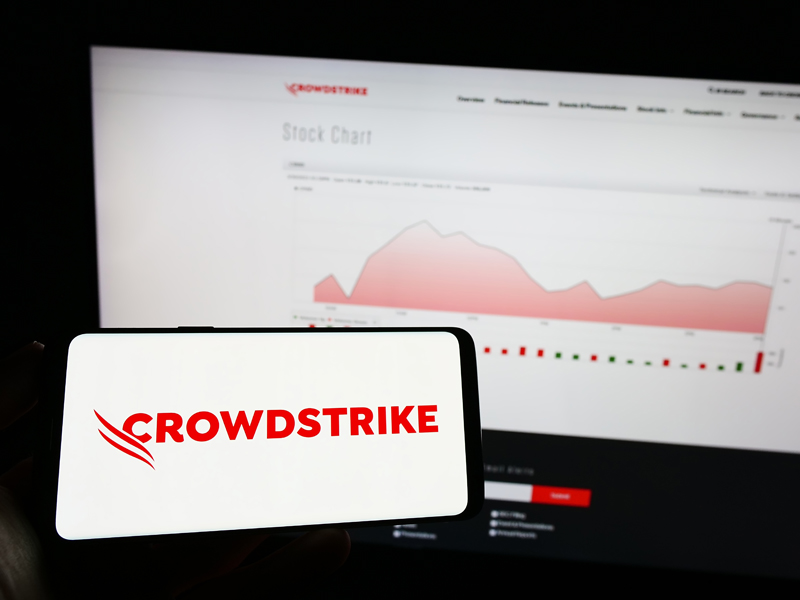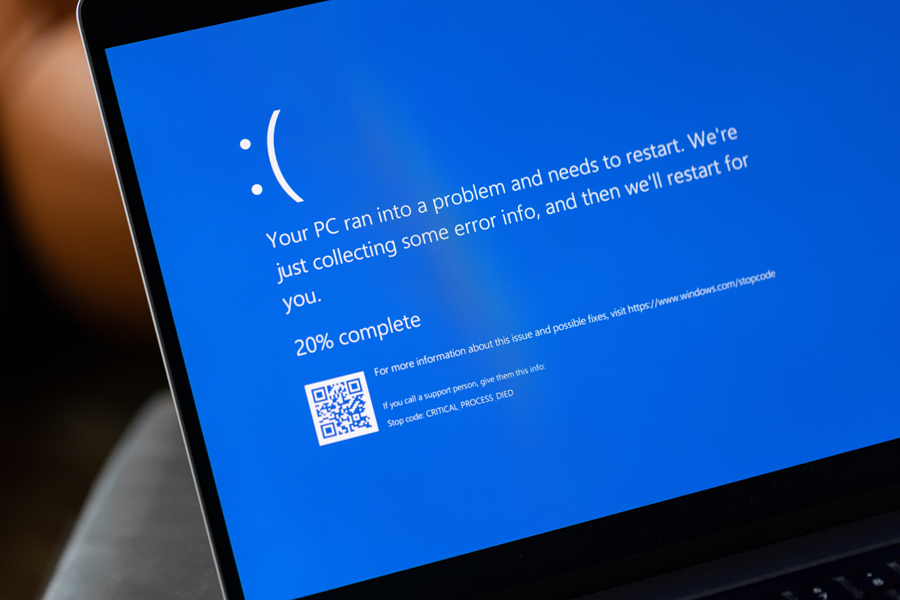Microsoft Outage: Counting The Costs of A Global Outage
They’re calling it the biggest global tech outage in history.
One that has been estimated to have a billion-dollar price tag.
Triggered by an unexpected issue during a tech update at CrowdStrike, a leading cybersecurity firm, the recent global Microsoft outage has sent ripples across the globe. The costs of this Microsoft outage extend beyond mere inconvenience, posing significant challenges to global economic stability and data security. It is a powerful reminder that even well-intentioned and routine technological changes can have far-reaching consequences if not meticulously managed. Now, more than ever, the spotlight is on the vulnerability of digital infrastructures and the cascading effects these vulnerabilities can have on international operations, emphasizing the importance of robust cybersecurity measures and efficient incident response protocols.
But what exactly is the cost of the Microsoft outage and how does it affect business owners? In this blog, we take a look at the economic repercussions for businesses and measures that could mitigate future risks.
Technical Cause and Incident Response

Described as “historic in scale” by research specialist and cybercrime adviser Mikko Hypponen, it was initially linked to a tool developed by CrowdStrike. Reports indicated that the Falcon sensor, a product designed to block online attacks, might have triggered crashes on Microsoft ports. This revelation came after various global entities, including Israel’s Cyber Directorate, pointed to CrowdStrike’s technology as a contributing factor to the widespread internet disruptions affecting airlines, companies, and governments worldwide.
In response to the outage, CrowdStrike acknowledged the situation through a customer service announcement stating their awareness of the crashes associated with the Falcon sensor. They advised customers to stay updated via their support portal. Concurrently, media outlets like the UK’s Sky News, which had been knocked off the air, managed to resume broadcasting using alternative methods such as printed notes and digital platforms like apps and websites, demonstrating a swift adaptation to the crisis. This incident underscored the critical need for robust incident response strategies and the importance of maintaining operational continuity amid unforeseen disruptions.
Global Economic Impact

The Microsoft outage had a profound impact on the global economy, affecting various sectors and disrupting international markets. Several key industries were impacted by the outage, such as broadcasting services that had to resort to alternative methods to keep their channels operational. Airports and shipping hubs also faced significant delays and operational shutdowns. Major airports experienced delays in check-in processes and flight operations and, alarmingly, medical institutions faced issues accessing patient records or medicines. Other impacts include:
- Revenue Losses
Significant financial losses were reported across multiple industries due to the Microsoft outage. For instance, the Baltic Hub, a major container hub in Gdansk, Poland, faced operational halts, directly impacting shipping and logistics. Similarly, media outlets like the UK’s Sky News experienced interruptions in broadcast, affecting their advertising revenues during the outage period. - Effect On International Markets
The outage caused widespread disruptions in international markets, particularly affecting travel and transportation sectors. Paris-Charles de Gaulle and Paris-Orly airports reported delays and temporary suspension of flights, which not only inconvenienced passengers but also led to financial losses due to disrupted travel plans and logistics. - Repair and Recovery Expenses
The financial burden of repairing and recovering from the outage is substantial. Businesses and government agencies had to invest in alternative solutions and overtime labor to restore services. The need for robust cybersecurity measures and updated infrastructure to prevent future incidents also adds to the long-term financial impact.
These concerning effects underscore the need for enhanced resilience and preparedness in digital infrastructures to mitigate economic losses from such significant outages.
Operational Consequences And Their Costs

- Effects on Businesses
The Microsoft outage had a significant impact on operations across various sectors. For instance, Sky News, after being knocked off the air, had to resort to printed notes and digital platforms to continue broadcasting. This not only disrupted their normal operations but also likely incurred additional costs in managing the crisis. Similarly, the Baltic Hub in Gdansk faced a complete halt, with entry gates closed and business activities suspended, showcasing how critical digital infrastructure is to maintaining continuous operations in the logistics sector. - The Costs of Downtime
Downtime costs can be substantial, affecting not only the direct operations but also the long-term reputation and operational capacity of businesses. For example, major airports like Paris-Charles de Gaulle and Paris-Orly experienced significant delays and temporary flight suspensions, impacting thousands of travelers and potentially leading to hefty financial losses. These incidents underline the importance of robust digital infrastructures and the high costs associated with their failures.
Cybersecurity and Policy Implications

The incident involving the CrowdStrike Falcon sensor, which led to widespread disruptions, has prompted a reevaluation of cybersecurity protocols. Governments and regulatory bodies are likely to scrutinize and possibly enforce stricter compliance requirements on cybersecurity firms and their deployment processes. This could include more rigorous testing and certification of security tools before they are integrated into critical infrastructure.
The fallout from the Microsoft outage underscores the urgent need for robust cybersecurity frameworks that can preemptively identify and mitigate risks associated with software updates and integrations. Companies like Microsoft and CrowdStrike are expected to enhance their collaboration with cybersecurity watchdogs to develop strategies that ensure the stability and security of digital platforms against such unprecedented disruptions. This strategic shift is crucial for maintaining trust and operational continuity in the digital economy.
Future Outlook and Recommendations
- Adoption of New Technologies
The recent disruptions underscore the necessity for businesses to adopt more advanced technologies. Innovations such as artificial intelligence and machine learning could play pivotal roles in predicting and mitigating the impacts of similar outages in the future. Companies must invest in these technologies to enhance their analytical capabilities and ensure more robust system monitoring.
- Strengthening Cybersecurity Measures
In light of the vulnerabilities exposed by the Microsoft outage, there is a critical need to strengthen cybersecurity measures. Organizations should focus on enhancing their security protocols and ensuring that cybersecurity tools like the Falcon sensor are thoroughly tested before widespread implementation. Regular updates and rigorous testing of security infrastructures are essential to guard against potential threats. - Building Resilient Systems
Building resilience into digital infrastructures is paramount. This includes developing systems that can maintain operational continuity even during unexpected disruptions. Businesses should consider redundant systems and enhanced disaster recovery plans to minimize downtime and mitigate the financial and operational impacts of future outages.
The Microsoft outage has vividly illustrated the vulnerability of global digital infrastructures, highlighting the cascading economic and operational impacts of such disruptions. It is imperative for organizations to proactively bolster their digital and cybersecurity infrastructures, ensuring that they can withstand and quickly recover from future outages. Building resilient systems and adopting new technologies are not just recommendations but necessities in the digital age. To secure and fortify their operational continuity against the backdrop of increasing cyber threats, businesses should consider the support of dedicated experts. Fortify your business technology systems with the help of dedicated experts through SpotOnTech, a commitment towards safeguarding the digital landscape and ensuring economic stability.




